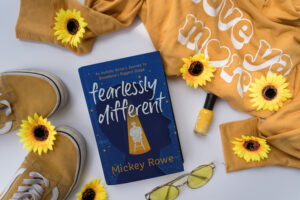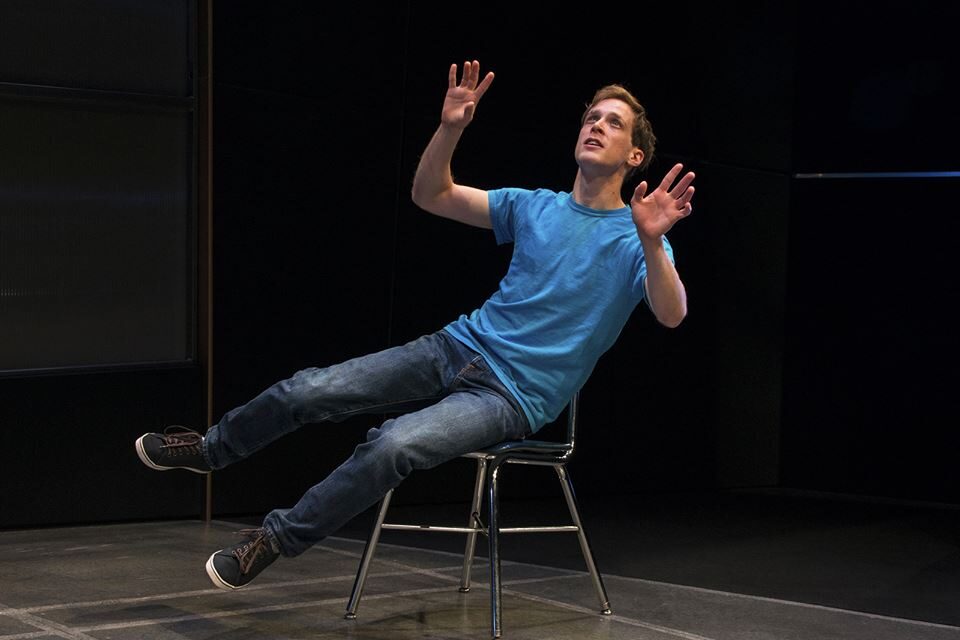By Annette Pinder
If you’ve ever been told that achieving your goals is impossible, or that your limitations will prevent you from achieving a fulfilled life, then meet Mickey Rowe. Mickey is an actor, director, speaker, author, and consultant who has been featured in The New York Times, the Today Show, NPR, The Wall Street Journal, NBC, The Huffington Post, Forbes, Vogue, CNN, and PBS.

He is the first autistic actor to play Christopher Boone, the lead role in the Tony Award-winning play The Curious Incident of the Dog in the Night-Time, and the title role in the Tony Award-winning play Amadeus. He keynoted at the International Council on Development and Learning, Lincoln Center for the Performing Arts, The Kennedy Center, Yale University, Columbia University, Disability Rights Washington, The Gershwin Theatre on Broadway, New York Public Library, and more.
An autistic and legally blind person, Mickey Rowe is a disability and accessibility expert who has led DEIA trainings and workshops for Nordstrom, Pfizer, BrightHouse, Lincoln Center for the Performing Arts, Metropolitan Opera, New York City Ballet, and more. He was the founding Artistic Director of the National Disability Theatre, which partners with Tony Award-winning companies, like La Jolla Playhouse in San Diego and the Goodman Theatre in Chicago. Most recently, Mickey authored the award-winning, bestselling book Fearlessly Different.
Born in Seattle to Jewish parents, Mickey’s mom had a difficult time accepting a child who was different. “I wasn’t what she expected,” says Mickey. He had an individualized education plan (IEP) in elementary school that included having to take speech, occupational therapy, and special education, but was never told that he was autistic. “It wasn’t until college when I was trying to figure out my life and why things weren’t working out that a therapist referred me to the University of Washington Adult Autism Clinic. It was the first time I’d ever heard the word ‘autism’ and it changed my life. Growing up thinking I was bad, stupid, and a problem, it was a relief to learn that I was simply autistic.”
Knowing Mickey’s home life was a problem, his grandparents seamlessly stepped in to take Mickey into their home and raise him. “My grandma loved me, made me feel competent, and helped foster my independence. She trusted me to explore the beaches of Puget Sound on my own.” Mickey recalls the booby-trapped room in his grandma’s basement, where she kept a sewing machine. There, he would draw photos of clown costumes, pirates, and stilt walking, and his grandma would sew costumes for him. “When you can’t express yourself in a way that people understand, and your efforts at friendship don’t go as you would hope, or when you unknowingly make people angry, playing a character helps you feel less vulnerable.”
Mickey became a single parent after marrying a woman who never accepted him, and even abused him. “I was told I could never get anyone worthwhile to marry me, so I married the first person to come along. When she started abusing our child, I had to get away.” Since then, Mickey married

Helen. The couple met while working in the theater together. “A single mom and general manager of a pirate ship day cruise charter company, Helen invited me for what I thought was a playdate for our kids. I soon realized that it was a real date, and the rest is history. We became engaged during the pandemic and ended up having a park courthouse wedding, rather than waiting for COVID to end. Together, our children are ages 5, 7, 8, and 11. We’re the Brady Bunch of the 21st century!”
Mickey is endorsed as a speaker and educator by the National Organization for Youth Safety and is a council member of the International Organization of Development and Learning. When not at home enjoying time with family, Mickey is often traveling to speak to middle and high schools, companies, and educators. He is happy and hopes to someday be given the opportunity to direct a revival of The Curious Incident of the Dog in the Night-Time. Above all, he wants everyone to know: “When we embrace all of our differences and value the things that make our colleagues’ lived experiences different from our own, we are better able to collaborate with each other, embracing all of our different strengths.”
Watch an upcoming television program featuring Mickey Rowe and neurodiversity-affirming speech-language therapist and Buffalo native Amy Pinder on WBBZ-TV on Wednesday, April 19 at 8 pm or Saturday, April 22 at noon on Channels 5 and 67. To learn more about Mickey, see video clips of his appearances, purchase his book, or arrange to have him speak at your organization, visit www.mickeyrowe.com.












